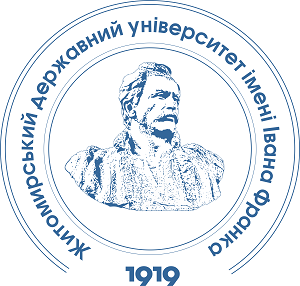SOCIAL-PSYCHOLOGICAL PRECONDITIONS FOR THE EMERGENCE OF “HOMO VIRTUALIS” IN THE INFORMATION SOCIETY
DOI:
https://doi.org/10.32782/psy-2024-3-12Keywords:
personality, species evolution, homo sapiens, homo virtualis, information society, adaptationAbstract
The article presents original insights into the evolution of humans in the context of the information society. Analytical materials are provided that reveal the specifics of evolutionary changes. With the increasing intensity of information processes, there is a growing need for the emergence of super-intellectual properties that ensure adaptation in the face of a vast array of information. The emergence of a new type of human is marked by the improvement of technologies for accessing information and social infrastructure. The contemporary culture of the information society is the result of changes in human adaptive properties. Each stage of human evolutionary development has been accompanied by a rethinking of the role and significance of knowledge. Initially, knowledge was considered sacred and had superhuman value, but in the modern era, it has become necessary for everyday use. In the colonial and industrial epochs, intellectual labor began to play a key role in shaping the system, and at the beginning of the 20th century, humanity experienced the first consequences of the information explosion due to the first scientific and technological revolution. activity and processing large volumes of information have become integral parts of life. Technological changes have accelerated the process of societal informatization and access to knowledge and have defined the trajectory of evolutionary changes in both physical and psychological human properties. Significant development of intellectual abilities is the result of adaptation to the conditions of the information environment, which rapidly virtualizes and acquires characteristics not inherent to the physical world. Further human evolution depends on the ability of humans to act productively in the conditions of the information space, which go beyond the evolutionary possibilities of “homo sapiens” and stimulate the emergence of a new species – homo virtualis.
References
Кириченко В.В. Особистість у сучасному інформаційному суспільстві. Житомир : Вид-во ЖДУ імені Івана Франка, 2020. 245 с.
Кириченко В.В. Особливості споживання інформації особами юнацького віку (порівняльний аналіз досліджень 2014 та 2018 років). Теорія і практика сучасної психології. 2018. № 5. С. 62–67.
Кириченко В.В. Психологія інформаційної діяльності : навчальний посібник. Житомир : Вид-во ЖДУ ім. І. Франка, 2015. 146 с.
Кириченко В.В. Cоціально-психологічна парадигма розуміння еволюції штучного інтелекту. Психологія та соціальна робота. 2023. № 2. С. 17–25.
Ніколенко І., Мазур І. Теорії антропогенезу та їх еволюція в науковому дискурсі. Наукові записки ВДПУ імені Михайла Коцюбинського. Серія: Історія. 2023. Вип. 43. С. 54–62.
Bach J., Shaffer G. Wolfson T. Digital Human Capital: Developing a Framework for Understanding the Economic Impact of Digital Exclusion in Low-Income Communities. Journal of information policy. 2013. № 3. P. 247–266.






